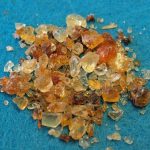It can be a hassle if you notice that you have sensitive teeth. Having sensitive teeth can make daily tasks like brushing, flossing, eating, and drinking uncomfortable. Having sensitive teeth is when you feel pain or discomfort in your teeth as a response to certain things. These things could be eating hot or cold food and drinks, cold air, sweet foods, sweet beverages, acidic foods, acidic beverages, cold water, brushing, flossing, or mouth rinsing can all trigger pain in sensitive teeth.
Why your teeth become sensitive is because the enamel wears down off your teeth exposing the layer underneath called the dentin. Sensitive teeth can be temporary or chronic. Pain can range from being mild to severe and can come and go. Something that triggers your teeth sensitivity may not always trigger the pain. Not all your teeth have to be sensitive, you may just have one, a few, or all of them.
If you are feeling pain from some of those common triggers of sensitive teeth it is best to speak with your dentist. They will be able to check you to see if you have any of the causes of tooth sensitivity. This can usually be done at a routine cleaning. Your dentist may want to take an x-ray of your teeth to see if there are any cavities, or root decay.
Causes Of Sensitive Teeth
One of the causes of tooth sensitivity is brushing too vigorously. If you are brushing with a vengeance and have a tooth brush with hard bristles it can wear the enamel right off your teeth. The wearing down of the enamel can cause the dentin to be exposed or cause gum recession. Both of which can lead to sensitive teeth.
Another cause is eating too many acidic and sugary foods and beverages. Examples of these are soda, coffee, tomato sauce, candy, refined carbohydrates, lemon, grapefruit, kiwi, and pickles. They will erode your tooth enamel off. Along the same lines using acidic mouthwash can also cause your tooth enamel to erode off. Tooth whitening toothpaste can also contain alcohol or chemicals that can be harmful for your tooth enamel.
If you are a teeth grinder or clincher that can also cause sensitivity. Grinding teeth can wear down the enamel and expose the dentin. Grinding or clenching your teeth day or night can cause the wear down of enamel. It is important to get fitted for a mouthguard if you suffer from either of these, to help prevent sensitivity.
Gum disease can cause your gums to be inflamed and sore. Gum disease also causes the ligaments to lose support so the gums pull away from the teeth. This can expose the root of the tooth where all the nerves are, which can cause your tooth to be very sensitive. Gum diseases like gingivitis, or periodontal disease.
Cracked teeth can also cause sensitivity. The crack in the tooth can fill with bacteria which can cause inflammation and pain.
Excessive plaque is another cause of sensitivity. Having too much plaque can cause the enamel to wear away.
Having recent dental work can also cause your teeth to be sensitive. Having a root canal, crown placement, or extraction can all cause sensitivity. This type of sensitivity usually goes away after a short amount of time. If it doesn’t you will want to reach out to your dentist.
Tips To Improve Teeth Sensitivity
If diagnosed with sensitive teeth there are some things you can do. One is to avoid triggers. If your teeth get painful when eating cold foods, try and pass on them. Avoid foods that are overly sugary and acidic, because they can wear the enamel down even more.
There are over the counter sensitive toothpastes you can buy to try to help build up a barrier on your sensitive teeth. Switch your toothbrush to a soft bristle brush and don’t brush too vigorously. When using mouthwash use an alcohol free one.
If your sensitivity is brought on from gum disease, a cracked tooth, or a dental procedure finding a treatment for those will help with your tooth sensitivity. If using over the counter products does not help after a short while, check with your dentist. They may be able to give you prescription toothpaste that may be able to help alleviate some of the pain and discomfort brought on from sensitive teeth.
Takeaway
Not all of your teeth have to be sensitive. You may only have one or a few teeth that are sensitive to certain things. Hot, and cold temperatures seem to be the most common triggers for pain. Sensitive teeth can be temporary or chronic. It is usually the result of the enamel being worn off the teeth exposing the underlayer called the dentin.
If you discover any discomfort you will want to speak with your dentist to make sure there isn’t an underlying condition causing your sensitivity.
Sensitive Teeth? Are your habits causing the problem? #HealthSurgeon
Sources:
https://www.mayoclinic.org/healthy-lifestyle/adult-health/expert-answers/sensitive-teeth/faq-20057854#:~:text=Sensitive%20teeth%20are%20typically%20the,worn%20filling%2C%20or%20gum%20disease.
https://my.clevelandclinic.org/health/symptoms/10954-teeth-sensitivity
https://www.healthline.com/health/sensitive-teeth#How-is-tooth-sensitivity-treated?
https://www.rifkindental.com/blog/8-potential-causes-of-tooth-sensitivity
https://www.everydayhealth.com/dental-health/10-biggest-causes-of-tooth-sensitivity.aspx









